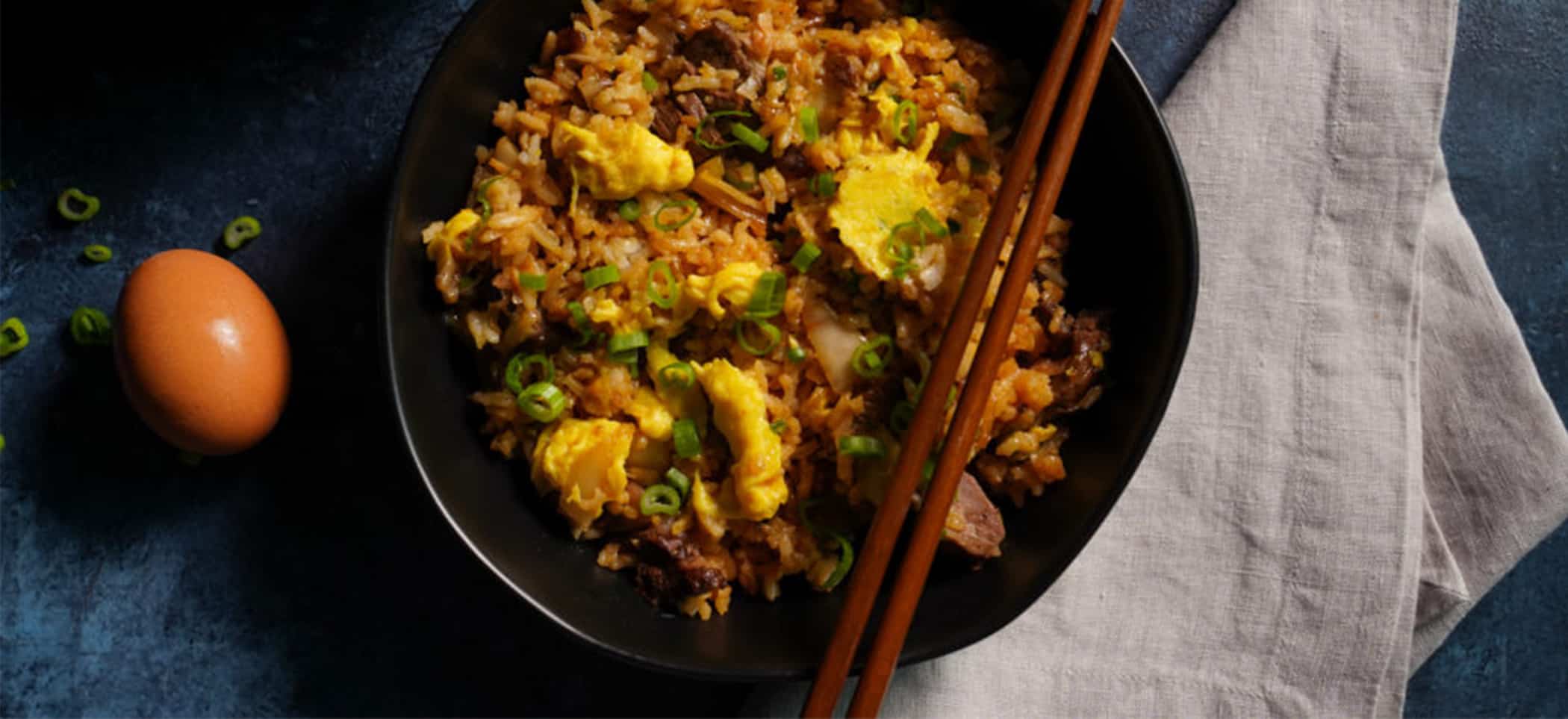

Directions
MARINATE steak in a large bowl with soy sauce, brown sugar, sesame oil, garlic, ginger, green onion whites and Sriracha. TOSS to coat and allow the steak to marinate for 45 minutes.
HEAT oil in a skillet and ADD chopped kimchi. SAUTÉ for one minute and ADD rice, kimchi juice and water. Continue to cook over medium high heat until rice begins to crisp, about 5 minutes. MOVE the rice to one side of the pan and add the eggs, mixing with a spatula until they begin to cook. STIR all ingredients together and remove from heat.
HEAT large skillet over high heat. ADD steak to the skillet and allow to sear on one side before using the tongs to move them around and caramelize on all sides. Once the juices have evaporated and the steak has a nice brown color, REMOVE from pan. Sprinkle with the reserved green onion tops and sesame seeds.
SERVE cooked steak over a bed of fried rice and ENJOY!
Ingredients
- 3 large EGGS
- 2 tsp. vegetable oil
- 3 cups steamed rice (cooled)
- 1 cup chopped kimchi
- 1/4 cup kimchi juice
- 3 tsp. sesame oil
- 1 1/2 pounds thin sliced steak
- 1/3 cup soy sauce
- 2 1/2 Tbsp. brown sugar
- 2 Tbsp. sesame oil
- 3 cloves garlic minced
- 1 Tbsp. freshly grated ginger
- 1 bunch green onions chopped
- 1 Tbsp. toasted sesame seeds
- Sriracha (to taste)
Tips
Cook the rice while the steak marinates to save time and use leftover rice to make this an easy weeknight dinner.
Kick up the spice by adding Korean chili peppers at the same time as the rice.
This recipe is an excellent source of protein, iron, choline and a good source of folate and potassium.
Per serving: 1/6 of recipe
- Calories 426
- Total fat 19 g
- Saturated fat 5 g
- Polyunsaturated fat 5 g
- Monounsaturated fat 7 g
- Cholesterol 171 mg
- Sodium 1296 mg
- Carbohydrates 31 g
- Fiber 1 g
- Sugar 7 g
- Protein 32 g
- Vitamin A 47 mcg
- Vitamin D 1 mcg
- Folate 53 mcg
- Choline 183 mg
- Calcium 78 mg
- Iron 4 mg
- Potassium 526 mg
To ensure food safety, eggs should be cooked until both the yolk and the white are firm. Consuming raw or undercooked eggs may increase your risk of foodborne illness, especially for those with certain medical conditions. For recipes that call for eggs that are raw or undercooked when the dish is served, use either pasteurized shell eggs that have been treated to destroy Salmonella, or use pasteurized egg products.
